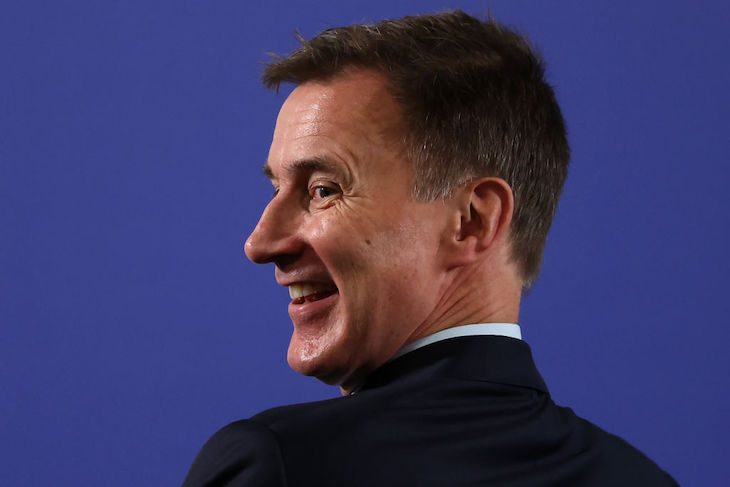When Jeremy Hunt takes to his feet in the Commons this afternoon to deliver his Autumn Statement, he’ll be trying to woo voters with some tax ‘giveaways’: VAT thresholds might be raised to help small businesses and the basic rate of National Insurance could be reduced for the rest of us. But hold on. Before the Chancellor gives anything back, both he and the Prime Minister Rishi Sunak need to do something far more important: they should apologise for all the tax rises the Tories have imposed.
We don’t know the final figure yet, but it turns out that the Chancellor has around £13 billion to £15 billion of ‘headroom’, as the fiscal jargon has it, to cut taxes. And yet, while Hunt will try and present his measures today as an act of generosity from a chancellor getting the economy back on track, isn’t this a sign of something else: that for too long the Tories have clobbered ordinary people with a sky-high tax burden?
Despite the fanfare, the tax cuts today will be relatively minor
If you rewind just twelve months, the usual suspects and think tanks were clamouring for tax rises to ‘balance the books’. As it turns out, these tax rates didn’t need to be quite so steep. Those who said taxes were too low were all completely wrong in their forecasts. The result? The government has taken more money out of the economy – and people’s pockets – than it needed to.
That has done huge damage. The rise in corporation tax has reduced investment, and although the allowances introduced today will help offset some of that, there are factories that have remained unbuilt and offices that are not let out because of it. The freezing of allowances has destroyed the incentives to work. An extra four million people have been pushed into the 40 per cent tax bracket, once reserved for top earners, and many young couples with children are now facing 60 per cent to 70 per cent marginal tax rates. Almost half-a-million people have left self-employment, put off by the extra taxes they have to pay and the punitive rules that try to classify them as ‘employees’. It is hardly surprising that fewer people can be bothered to work.
The blunt truth is that, if it had not been for the excessive tax rises imposed a year ago, the British economy would probably be growing by 1 per cent to 2 per cent a year right now. This would not be spectacular, but it would be a lot better than zero per cent. It would also help to create more wealth, and, come to think of it, provide some extra tax revenues as well. It is all very well for Hunt to reverse some of that today, and it is better than nothing. And yet, despite the fanfare, the tax cuts today will be relatively minor and won’t make much of a difference to anything. The Autumn Statement measures are too little, too late from a high-tax party that looks increasingly out of touch with voters.






Comments